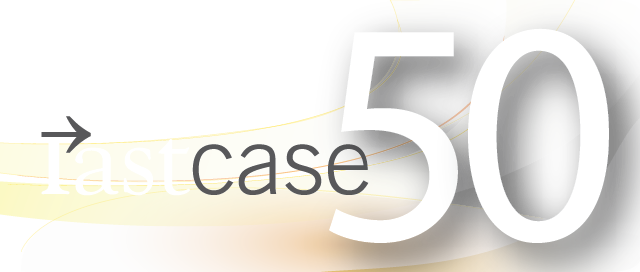
Click here to see the Fastcase 50 Class of 2023!
Honoring the law’s smartest, most courageous innovators, techies, visionaries, & leaders. Lawyer or nonlawyer, techie or nontechie, anyone is eligible.
Created in 2011, each year the Fastcase 50 award honors a diverse group of lawyers, legal technologists, policymakers, judges, law librarians, bar association executives, and people from all walks of life. In many cases, honorees are well known, but in many others, the award recognizes people who have made important, but unheralded contributions.
“When we look back at the pandemic era, we will see it as a great reset in our attitudes and assumptions about legal services,” said Fastcase CEO Ed Walters. “Even if they have had to spend more time on Zoom this year than they had planned, the 2022 class of honorees is making profound changes for the next generation of law. We celebrate these impactful advocates and inspiring innovators who are shaping the future under incredibly challenging circumstances.”
 Jason Adaska
Chief Technology Officer, Juris Futura; Director of Innovation Lab, Holland & Hart
Jason Adaska
Chief Technology Officer, Juris Futura; Director of Innovation Lab, Holland & HartJason Adaska is part of a new class of intrapreneurs in law firms. He works in two roles at Holland & Hart - leading the firm’s technology innovation team and overseeing its new tech consulting subsidiary, Juris Futura. Jason brings his knowledge of applied math (Ph.D. from Harvard University) with electrical engineering and computer science (B.S. from Cornell University) and science (research scientist and director at Numerica Corporation) to legal technology services. He uses APIs to analyze litigation and creates elegant solutions for real problems that lawyers face, and uses document automation, low-code solutions, and machine learning to help the firm’s clients tackle a new breed of workflow challenges.
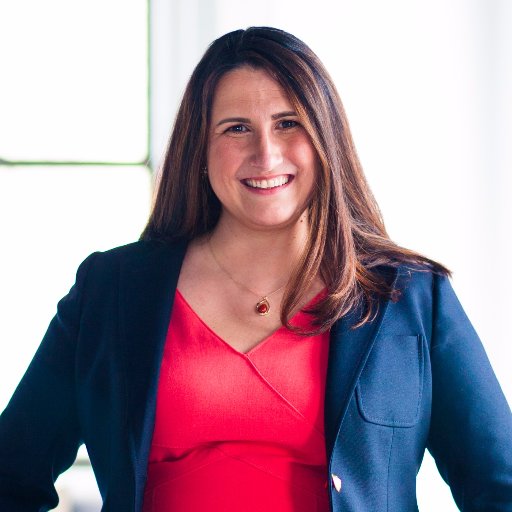 Haley Altman
Global Head of Corporate Development, Litera
Haley Altman
Global Head of Corporate Development, LiteraWe’re certainly not the first to recognize Haley Altman as a force in the legal industry. She served as an associate at Wilson Sonsini and Ice Miller, where Haley made history by becoming the Ice Miller’s youngest equity partner. There, she invested in growing entrepreneurial companies to gain financial success. Following her career in BigLaw, Haley founded and launched Doxly, a tech startup built to organize attorneys’ legal transactions through its cloud-based platform. Now that Doxly has been acquired by Litera, a leading software company for law firms and legal departments, Haley works as the Global Head of Corporate Development at the company. In that role, she continues to make data management efficient, encourage collaboration, and structure workflow for users in the legal industry -- but just as importantly, Haley is relentless in her support for others in the industry.
 Roy Austin
Vice President of Civil Rights and Deputy General Counsel, Facebook
Roy Austin
Vice President of Civil Rights and Deputy General Counsel, FacebookIn January 2021, Facebook hired Roy Austin as its first Vice President of Civil Rights, to establish a new civil rights division in the company, where he will work to combat algorithmic bias and systemic racism. Roy is no stranger to civil rights work. Before Facebook, he practiced civil rights law at Harris, Wiltshire & Grannis, worked as a Senior Assistant U.S. Attorney in the Civil Rights Unit of the DC U.S. Attorney’s Office and as a Deputy Assistant Attorney General in the Department of Justice’s Civil Rights Division. He is not new to tech policy either. Roy worked on the White House Domestic Policy Council, where he co-wrote a report on Big Data and Civil Rights. He also worked on the White House Task Force on 21st Century Policing, helped develop the Police Data Initiative and was a member of the President’s My Brother’s Keeper Task Force. The civil rights movement of the 2020s will look substantially different from movements past, and they will demand a new generation of leader with experience in tech policy, law, and civil rights - the exact experience that Roy Austin brings to his new role at Facebook.
 Brad Blickstein
Principal, Blickstein Group; Partner and Co-Head of NewLaw Practice Group, Baretz+Brunelle
Brad Blickstein
Principal, Blickstein Group; Partner and Co-Head of NewLaw Practice Group, Baretz+BrunelleBrad Blickstein is a trend-spotter in the legal field, known for developing the longest-running Annual Law Department Operations Survey. Brad has also launched a comprehensive study on Annual Legal Spend and developed the Legal AI Efficacy Report. Brad’s initiatives allow helpful cross-firm comparisons and whole-industry analyses that are otherwise extremely difficult. He wears many hats in the legal industry, founding the research and advisory firm Blickstein Group and recently joining Baretz+Brunelle to co-lead its NewLaw practice group. Additionally, Brad has a history of working as a writer for Above the Law and LegalTech News, and he helped create Corporate Legal Times (today called Inside Counsel). Brad is also a regular contributor to conferences such as New York LegalTech, LegalWeek, ILTA and COLPM.
 Vanessa Blum
Newsroom Innovation Director, ALM Media; Executive Editor, Law.com Radar
Vanessa Blum
Newsroom Innovation Director, ALM Media; Executive Editor, Law.com RadarVanessa Blum is a Swiss army knife, using her experience, creativity, and skill to connect technology with legal journalism and innovate in the field. She joined ALM in 1999 shortly after receiving a degree in journalism, and after a hiatus in other newsrooms, returned to ALM as a federal litigation reporter in 2016. Two years later, she was appointed director of newsroom innovation, where she’s a creator and champion of new journalism initiatives. Vanessa simultaneously is a reporter and also a product strategist - launching new initiatives at ALM, including the Legal Speak podcast, which she co-created. Vanessa launched Law.com Radar, an automated journalism product combining algorithmic news tagging with ALM’s editorial expertise and allowing users to customize their news feed.
 Joe Borstein
CEO and Co-Founder, LexFusion
Joe Borstein
CEO and Co-Founder, LexFusionJoe Borstein was part of the team that built juggernaut LPO firm Pangea3, which (as a managing director) he followed through to its acquisition by EY. Now Joe has leveraged this experience to help new legal software companies gain traction in law firms. Joe is the CEO and Co-Founder of LexFusion, a company that works to incubate and accelerate a “collaborative circle of hand-picked, truly excellent legal innovation companies.” Great, young companies often struggle to meet law firm leaders and to get their first few sales. LexFusion acts as an important signal for law firms inundated with pitches, and serves to (in the company’s words) grease the gears of commerce in legal operations and practice. In addition to LexFusion, Joe has chronicled legal tech companies and large law firm life for Above the Law and served as a board member for his alma mater, the University of Pennsylvania.
 Bryon Bratcher
Director of Practice Solutions, Reed Smith LLP; Managing Director, Gravity Stack
Bryon Bratcher
Director of Practice Solutions, Reed Smith LLP; Managing Director, Gravity StackAs Director of Practice Solutions at Reed Smith and Managing Director at Reed Smith’s subsidiary, Gravity Stack, Bryon Bratcher is redefining what’s possible in how law firms create, use, and value legal tech solutions. Gravity Stack, a pioneering law firm technology spin-off for delivering collective intelligence in law, is a unique blend of data and human analysis. Last year GravityStack licensed its software to another law firm, illustrating a trend of law firms moving from consumers of legal information products to becoming producers of those products - law firm innovators are now spinning off software companies. Bryon’s achievements with Gravity Stack have been an example to other law firms with subsidiaries, as he has paved the way for software innovators inside law firms.
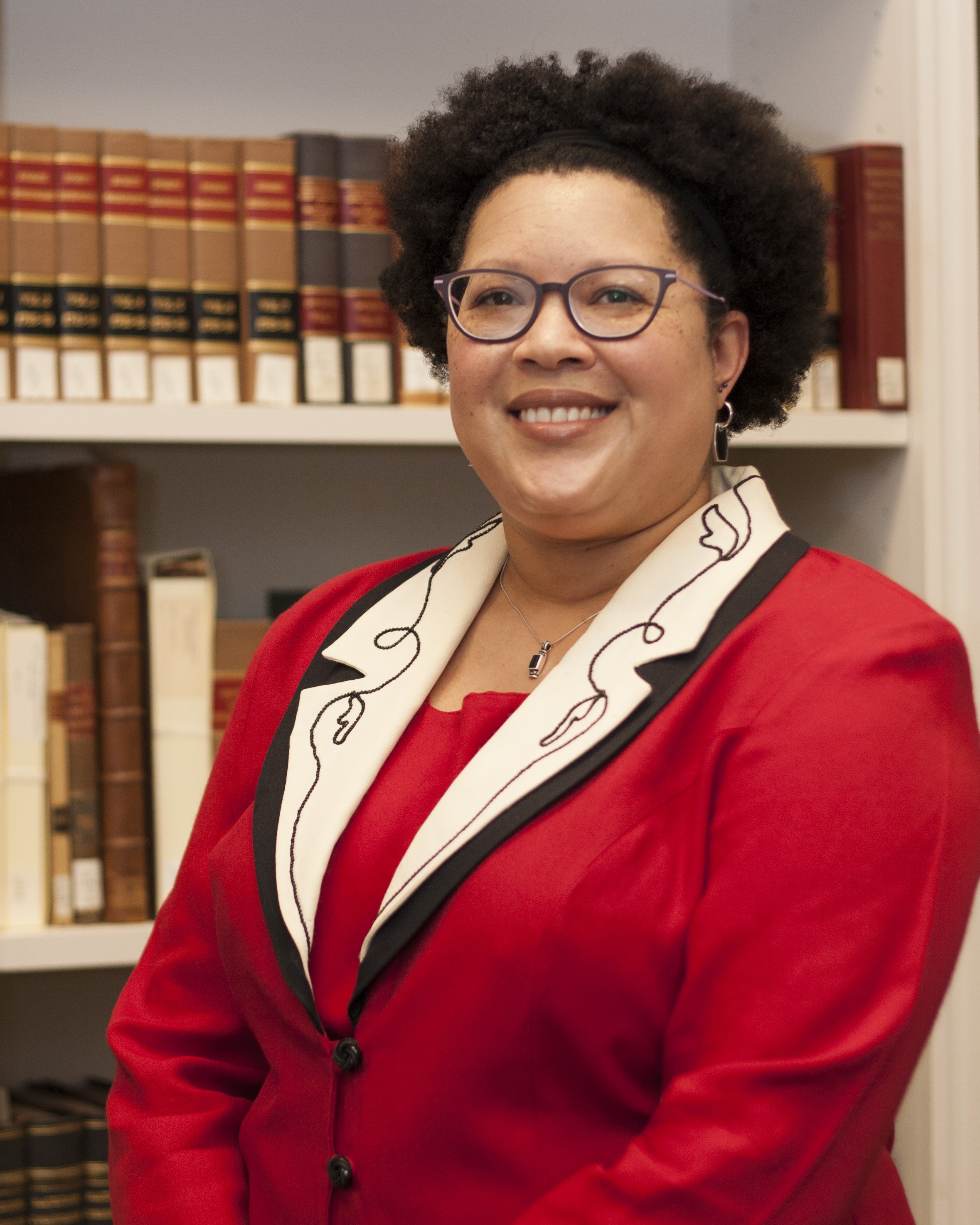 Miriam Childs
Director, Law Library of Louisiana, Louisiana Supreme Court
Miriam Childs
Director, Law Library of Louisiana, Louisiana Supreme CourtMiriam Childs is a protector of the past and a thinker for the future. In her role as Director of the Law Library for the Louisiana Supreme Court, Miriam is a custodian of a wide-ranging collection of civil law materials and a curator of a very impressive French/Spanish/Louisiana rare book collection. She oversees the rare book collection detailing the lineage of Louisiana’s history and its uniquely created codes and laws that trace back to Napoleon, Spain, and the Louisiana Purchase. Besides protecting this unique collection of the past, Miriam also advocates for underrepresented groups and helps to create pathways to amplify their voices in the future. For example, her development and promotion of programs for the Black Law Librarians Special Interest Section of the American Association of Law Librarians (AALL).
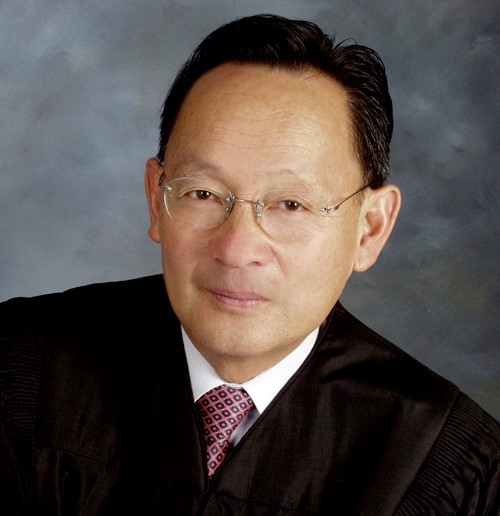 Ming W. Chin
Justice (ret.), California Supreme Court
Ming W. Chin
Justice (ret.), California Supreme CourtThe son of Chinese immigrants, Ming W. Chin became the court’s first Chinese American justice in 1996, when he was appointed by Governor Pete Wilson. He authored more than 350 majority opinions during his time on the bench, leaving behind a distinguished judicial legacy. An early proponent of innovation, Justice Chin chaired the court’s Technology Advisory Committee for a decade, providing intellectual and administrative leadership to help the courts embrace technological change and expand access to justice. As one colleague put it, “When it comes to court technology, there has been no more consistent champion than Justice Chin.” A renowned expert on forensic DNA evidence, Justice Chin has led efforts to increase judicial training and education on scientific issues. He is also the author of two California practice guides published by the Rutter Group: Employment Litigation and Forensic DNA Evidence: Science and the Law. Colleagues describe Justice Chin as a continuing source of inspiration and a model of judicial excellence, intellectual clarity, and unwavering collegiality. As a colleague observed when the court paid tribute to Justice Chin before his final oral argument: “In every generation, the law depends on intellects like Ming Chin, to understand the evolving present and to help guide the law into its future. It is impossible to imagine the evolution of California law without the influence of Ming Chin – fortunately, we don’t have to.”
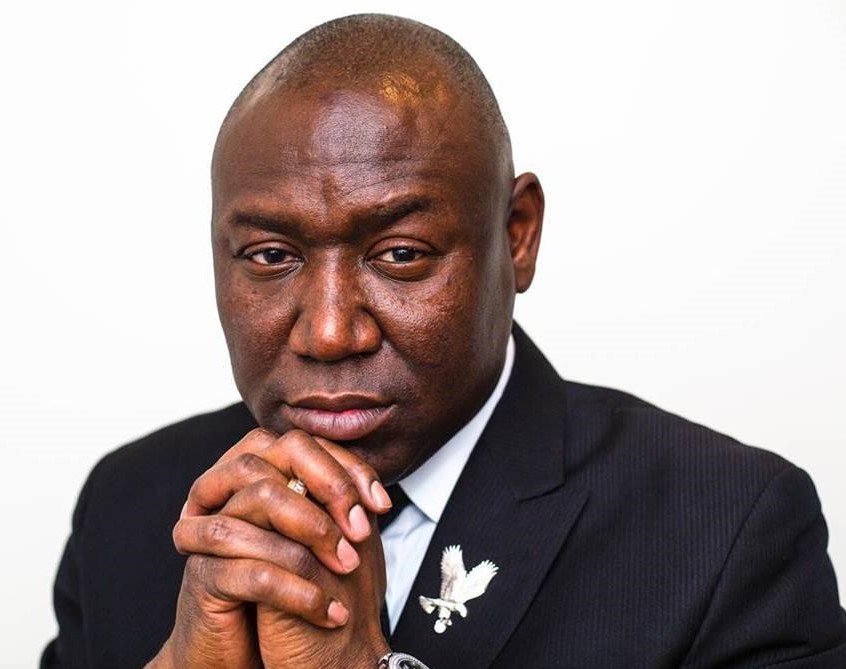 Ben Crump
Founder and President, Ben Crump Law, PLLC
Ben Crump
Founder and President, Ben Crump Law, PLLCTouted by Rev. Al Sharpton as “Black America’s Attorney General”, Ben Crump has been the attorney of choice for the families of victims of police violence, including Breonna Taylor, Sean Reed, and George Floyd. Beyond representing the families of victims, Ben is a tireless advocate for social and legal change, testifying in Congress, city councils, and in media appearances, continuing to highlight issues of importance to Black America. Following the example of his hero Thurgood Marshall, Ben is unapologetic in his use of the bully pulpit of modern media, including podcasts, traditional media sources, and a vibrant social media presence, to amplify the voices of the victims of racially motivated violence and their families.
 James Duggan
Director of the Law Library and Associate Professor of Law, Tulane University Law School
James Duggan
Director of the Law Library and Associate Professor of Law, Tulane University Law SchoolJames Duggan exemplifies leadership among law librarians as Director of the Law Library and Associate Professor of Law at Tulane Law School. James has worked to solidify Tulane’s position as a top-ranked national law school while maintaining the University’s position as a civil law bastion. He has been a constant and important force within the profession, both as a former AALL president and as a promoter of emerging leadership within the association. He is heavily involved within the profession as editor of the Law Library Journal, and member of the Louisiana Academic Libraries Information Network Consortium Executive Board. James has also served as chair within the association’s division of law schools, and he is a prolific author of leading articles about the legal profession, legal research, and legal technology.
 Tonya Evans
Professor of Law, Penn State Dickinson Law
Tonya Evans
Professor of Law, Penn State Dickinson LawTonya Evans’s podcast, Tech Intersect, focuses on legal and ethical issues inherent in emerging technologies like artificial intelligence, machine learning, and the internet of things. The podcast goes beyond the law and also contains practical discussions, such as how people can learn and invest to benefit from these changes in the economy. Tonya recently joined Dickinson Law at Penn State, where she teaches tech-focused courses on information privacy and blockchain. She previously served as Associate Dean of Academic Affairs and Professor of Law at the University of New Hampshire’s School of Law, where she created and directed the school’s Blockchain, Cryptocurrency & Law online professional certificate program. Tonya recently joined MakerDAO as Chair of the Maker Foundation, which is indicative of her passion for making the benefits of digital currency more inclusive.
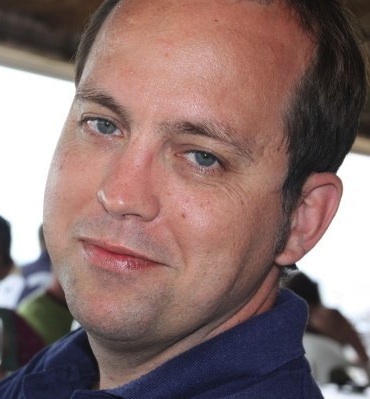 Lluis Faus
Co-Founder, CEO and Executive Chairman, vLex
Lluis Faus
Co-Founder, CEO and Executive Chairman, vLexAs global publishing companies began carving up the world’s legal information markets, Lluis Faus and his team at vLex began creating one of the world’s largest legal research libraries, with libraries from around the world. Today vLex has become a real contender in the global legal information market, and Lluis remains at the helm today. He successfully oversees a multicultural team across four continents, and he has created innovative new products such as Vincent, the company’s brief analysis tool, and Iceberg, its AI engine specifically trained on legal data. Lluis has proven his skill in creating growth, scaling teams, expanding geographically, creating new products and services, as well as via acquisitions. Every year, someone nominates an innovator so obviously a fit for the Fastcase 50 that we’re sure that we’ve honored them in the past - we correct that oversight by welcoming Lluis to this year’s Fastcase 50 class of honorees.
 Sam Fletcher
Research Scientist, Kira Systems
Sam Fletcher
Research Scientist, Kira SystemsArmed with a background in PhD-level data science, Sam developed a differential privacy algorithm to protect client-confidential information when legal machine learning models trained with sensitive data are shared. It was a game changer for collaborators in the space. The innovation, which was created alongside his team at Kira Systems, has morphed into Kira’s Quick Study and Smart Field Sharing, tools that allow lawyers and other legal professionals to work on AI-assisted contracts across organizations, or train fields for their own needs based on the data of other users. We’re excited to imagine what other applications based on Sam’s work are on the horizon.
 Ivan Fong
Executive Vice President, Chief Legal and Policy Officer and Secretary, 3M
Ivan Fong
Executive Vice President, Chief Legal and Policy Officer and Secretary, 3MFormer Deputy U.S. Attorney General Jamie Gorelick has said of Ivan Fong “I don’t think Ivan has a boat, but to use a boating metaphor, he has a great, great rudder.” Perhaps Ivan’s reliable rudder was never more important than in the early months of 2020. With 3M’s N95 respirators in unprecedented demand, Ivan had to navigate 3M through difficult waters with President Trump, who had invoked the Defense Production Act to prioritize federal orders for the respirators, while simultaneously asking the company to stop exporting them to Canada and Latin America. Ivan successfully navigated the situation, securing an agreement that allowed 3M to both import and export respirators and mitigate the significant PPE shortage crisis in the United States. Ivan is no stranger to working with the government, having served as General Counsel to the Department of Homeland Security and Deputy Associate Attorney General in the U.S. Department of Justice.
 Patrick Fuller
Vice President of Legal Intelligence, ALM Intelligence
Patrick Fuller
Vice President of Legal Intelligence, ALM IntelligencePatrick Fuller has become a recognized name in the legal tech sphere, having previously worked as VP of Business Development at Neota Logic and Director of Legal Analytics for ELM Solutions. These days Patrick spends his time as VP of Legal Intelligence at ALM Intelligence, where he is known for his generous nature and networking acumen related to law firm competitive intelligence and data analytics. To that end, Patrick is a founding member of the Changing Legal Think Tank and contributes his time to diversity initiatives such as Diversity Lab’s Move the Needle Fund and The Chiral Project.
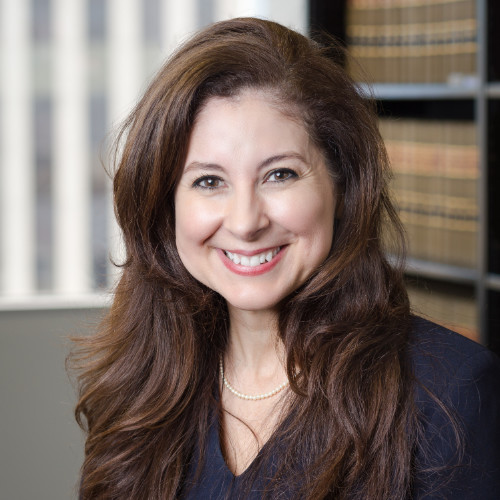 Maria Hall
Director, Los Angeles Incubator Consortium
Maria Hall
Director, Los Angeles Incubator ConsortiumAlongside her schedule as a working solo attorney, Maria Hall is the director of the Los Angeles Incubator Consortium (LAIC), an organization which helps newly-minted attorneys find their footing in the challenging world of solo practice. In its six years of operation, LAIC has graduated 60 lawyers who have gone on to launch their own practices in Los Angeles. These firms frequently serve clients of limited means who are often critically underserved by the legal profession. Maria’s work at LAIC is an important step in democratizing the law, supplementing legal education with business mentorship. Her background as an immigrant sparked her desire to learn immigration law, but she didn’t know much about starting her own business. Her experiences hanging out her own shingle - from opening business bank accounts to getting the right insurance and handling clients - fuel her passion to help those following in her footsteps in opening doors so others have access to justice. Maria also serves as a member of the Los Angeles County Bar Association’s Access to Justice Committee, and she is a board member of the Mexican American Bar Foundation.
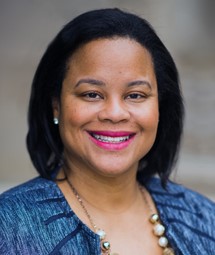 Danielle Holley-Walker
Dean and Professor of Law, Howard University School of Law
Danielle Holley-Walker
Dean and Professor of Law, Howard University School of LawAs a Houston native whose family has long been involved in legal education, Danielle Holley-Walker has geared her academic career, in the classroom as well as in administrative positions, towards the goal of equal educational opportunity. Her research has focused on several issues related to the intersection of race, class, and learning – from No Child Left Behind to affirmative action and charter schools. As the current Dean of Howard University School of Law, Danielle’s mission is to produce the next generation of attorneys focused on civil service and ushering in equal access to voting rights, immigration, and the legal profession as a whole. While the challenges of 2021 continue to lay bare the cracks in the American education and justice systems, we know Danielle will be a crucial asset in producing better opportunities for all.
 Al Hounsell
Senior Innovation Lawyer, Norton Rose Fulbright
Al Hounsell
Senior Innovation Lawyer, Norton Rose FulbrightAl Hounsell knows that not every businessperson can code like Mark Zuckerberg, Bill Gates, Larry Page, or Elon Musk, but several can benefit from having custom apps for their businesses. Al’s unique background as a licensed lawyer, seasoned coder, and entrepreneur in building the culture of a startup within an established law firm led him to innovate a tool to help Norton Rose Fulbright clients build custom apps for their businesses — even if the clients don’t know how to code. The platform, known as NRF Transform NCode, can simplify business issues such as trademark searches and regulatory compliance. As Senior Innovation Lawyer at Norton Rose Fulbright, Al manages national production and deployment of innovative legal services and tools at the intersection of law and technology. His contributions to the firm placed first overall in the firm-wide Global Chair Innovation award for his focus on application building platforms. These contributions include leading NRF’s first-ever Client Solutions Development Team in Canada.
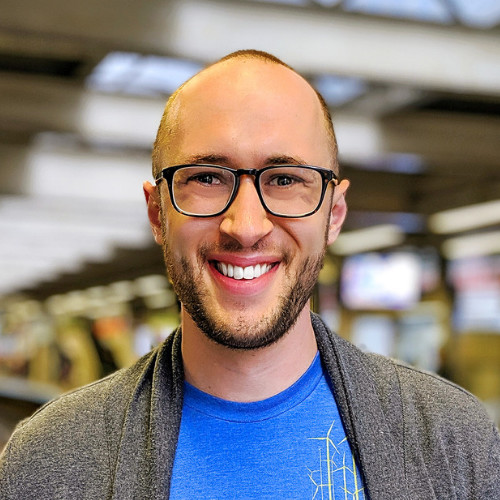 Ben Jackson
Co-Founder and COO, Immigrants Like Us
Ben Jackson
Co-Founder and COO, Immigrants Like UsBen Jackson is using tech tools to tackle common problems in immigration law. He was awarded the Access to Justice Tech Fellowship and the Equal Justice Foundation fellowship while attending The Chicago-Kent College of Law. Since then, Ben has worked with fellow Fastcase 50 honorees Jonathan Petts and Rohan Pavuluri to create consumer bankruptcy solution Upsolve, and now he’s the COO and co-founder of legal aid nonprofit Immigrants Like Us. He’s a technologist and an expert at automating legal processes who has created ImmigrationHelp.org. The nonprofit provides an online tool, equated to the “Turbo Tax for DACA applications”, allowing Dreamers to apply online for free. Ben and his team are on a mission to make immigrating to the United States easy, safe, and free by combining the power of technology with attorneys to help people achieve the American dream. They’ve assisted more than 3,000 immigrants at various stages in their immigration process. The budding organization has received funding from Google.org, KKR, and Harvard University.
 Jay Kim
Managing Partner, Kim Vaughan Lerner
Jay Kim
Managing Partner, Kim Vaughan LernerAs the legal profession had to adjust to the new conditions mandated by COVID-19, Florida Bar Board of Governors member Jay Kim stepped up to the plate. He led by being a pathfinder. As Chair of The Florida Bar Board of Governors Technology Committee, Jay was instrumental in producing and publishing The Florida Bar Recommended Best Practices Guide for Remote Court Proceedings. Jay’s work with video call provider Zoom has directly led to changes to its platform. Those changes both improved remote court proceedings and the practice of law during unprecedented times. But Jay didn’t stop there. He also facilitated the rollout The Florida Bar Tech Support Helpline, a service directed towards solo and small firm attorneys in Florida.
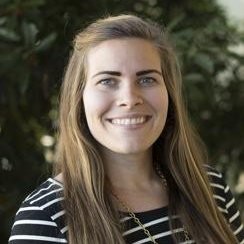 Hannah Konitshek
Business Operations & Strategy, Legal.io
Hannah Konitshek
Business Operations & Strategy, Legal.ioAs a co-founder of Legal.io, Hannah Konitshek heads Business Operations & Strategy and is building new business lines through a combination of law, entrepreneurship, and technology. Under her guidance, Legal.io has brought together a diverse, global community of thousands of legal professionals that have been matched to hundreds of thousands of matters. In her past role as an investor with Polymath Capital Partners, Hannah focused investments in seed-stage companies with a focus in legal technology. She supports the development of policy strategies that are flexible enough to handle new challenges and benefit from emerging opportunities in a rapidly changing world. Legal.io has created innovative profile directories, job boards, legal software recommendations, and hourly-rate calculation tools for legal professionals.
 Brian Lee
Serial Entrepreneur; Co-Founder, LegalZoom
Brian Lee
Serial Entrepreneur; Co-Founder, LegalZoomWhen former Skadden lawyer Brian Lee co-founded LegalZoom in 1999, the term “legal tech” had not even entered the vernacular. But Brian saw that there was a class of legal services, such as wills, trademarks, and small business incorporations, that lawyers were not providing. LegalZoom filled that void with consumer-oriented services and Brian’s vision became a cornerstone of the legal tech (and access to justice) world. Over 22 years, LegalZoom pursued a mission of democratizing the law, created innovative legal services for the “people law” sector, grew to more than $471 million of revenue last year, and just this month, filed its S1 for an IPO, valuing the company at more than $5 billion. LegalZoom was the first, but not the only company Brian founded. A serial entrepreneur, he also founded fashion subscription service ShoeDazzle alongside fellow entrepreneur Kim Kardashian and Honest Company, a now-public consumer goods retailer that Brian founded with Jessica Alba.
 Sang Lee
CEO and Co-Founder, Thine, LLC; Owner, Volta Talent Strategies
Sang Lee
CEO and Co-Founder, Thine, LLC; Owner, Volta Talent StrategiesAs a leader in the realm of legal recruiting, Sang Lee has transformed how firms locate talent. A lawyer by training who pivoted to recruiting when she founded her own company (SJL Attorney Search) in 2004, Sang has worked tirelessly to solve the major issues holding back the industry, namely a high fee, commission-based system that doesn’t serve recruits or employers. A first-generation Korean-American immigrant, Sang’s personal motto is “Own the Awkward” and she has proven she’s not afraid to tackle anything in the legal recruiting industry. Since founding her first company then forming Volta Talent Strategies, Sang is now expanding her impact with her latest project – Thine. Thine leverages tech to compile personality and skill assessments, performance metrics, and predictive hiring algorithms that minimize bias and reduce costs. In the words of a legal recruiter peer, “Sang continues to demonstrate that she is creative, innovative, intelligent, hardworking, generous, and incredibly likable.”
 Mirra Levitt
Co-Founder and Chief Product Officer, Priori
Mirra Levitt
Co-Founder and Chief Product Officer, PrioriAs CPO of Priori, which she co-founded with fellow female entrepreneur (and Fastcase 50 honoree Basha Rubin), Mira has become one of legal tech’s most trusted matchmakers, connecting companies with outside practitioners. Priori analyzes RFPs to find the right lawyer for projects – a major time saver for Fortune 500 companies, which spend millions of dollars each year searching for the right outside legal counsel candidates. These two driven Yale Law School alumnae are leading legal technology entrepreneurs and know firsthand the challenges of fundraising for an enterprise services startup as women and moms of young children. With the COVID-19 pandemic only increasing demand, investors see the value in Mirra’s product. Priori recently secured another round of funding to the tune of $6.3 million.
 June Liebert
Director of Information Services, O’Melveny & Myers LLP
June Liebert
Director of Information Services, O’Melveny & Myers LLPJune Liebert brings her extensive background in information management to bear as Director of Information Services at O’Melveny & Myers. Her impact on the legal world began before law school with an early interest in using computers for legal matters when she worked at a startup that created an early PC-based system for complex litigation case management, which was ultimately used by more than 40 law firms and 10 major corporations. Since then, June has held influential roles as CIO at University of Illinois Chicago's John Marshall Law School and the University of Texas School of Law, Firmwide Director of Library and Research Services at Sidley Austin LLP, co-chair of the alumni board of the IU Luddy School of Informatics, Computing and Engineering. and Executive Board Member of AALL. She’s a frequent speaker on technology, data, and library management and also a prolific writer, co-authoring an influential article about link rot in US Supreme Court decisions that was published in the Yale Journal of Law and Technology.
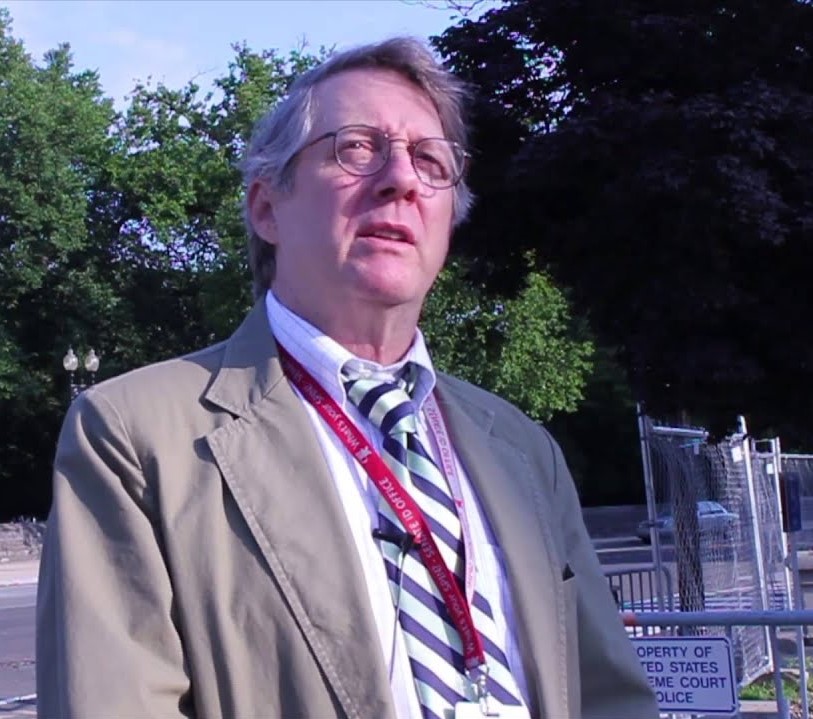 Art Lien
Courtroom Sketch Artist, Courtartist
Art Lien
Courtroom Sketch Artist, CourtartistArt Lien is one of a handful of sketch artists with a multi-decade career, giving us glimpses into historic moments in courtrooms and congressional chambers that aren’t captured on camera. Since his first job drawing courtroom hearings for CBS in the 1970’s, Art has witnessed many notable criminal trials and Congressional hearings. Although his methods are low-tech (he sketches on paper with a graphite pencil and sometimes uses a small box of watercolors if the metal case doesn't set off the detectors) Art is a master of quickly capturing and conveying the peculiar, quirky, and fascinating off-camera courtroom moments. His “reportage drawing” for NBC and SCOTUSblog captures insights into the stories that make history, showing us body language and intriguing expressions, senators snoozing or wearing dress shoes without socks, and congressional colleagues handing out fidget spinners before impeachment trials. A picture is worth 1,000 words, and Art’s ability to include us as spectators to historical moments is priceless.
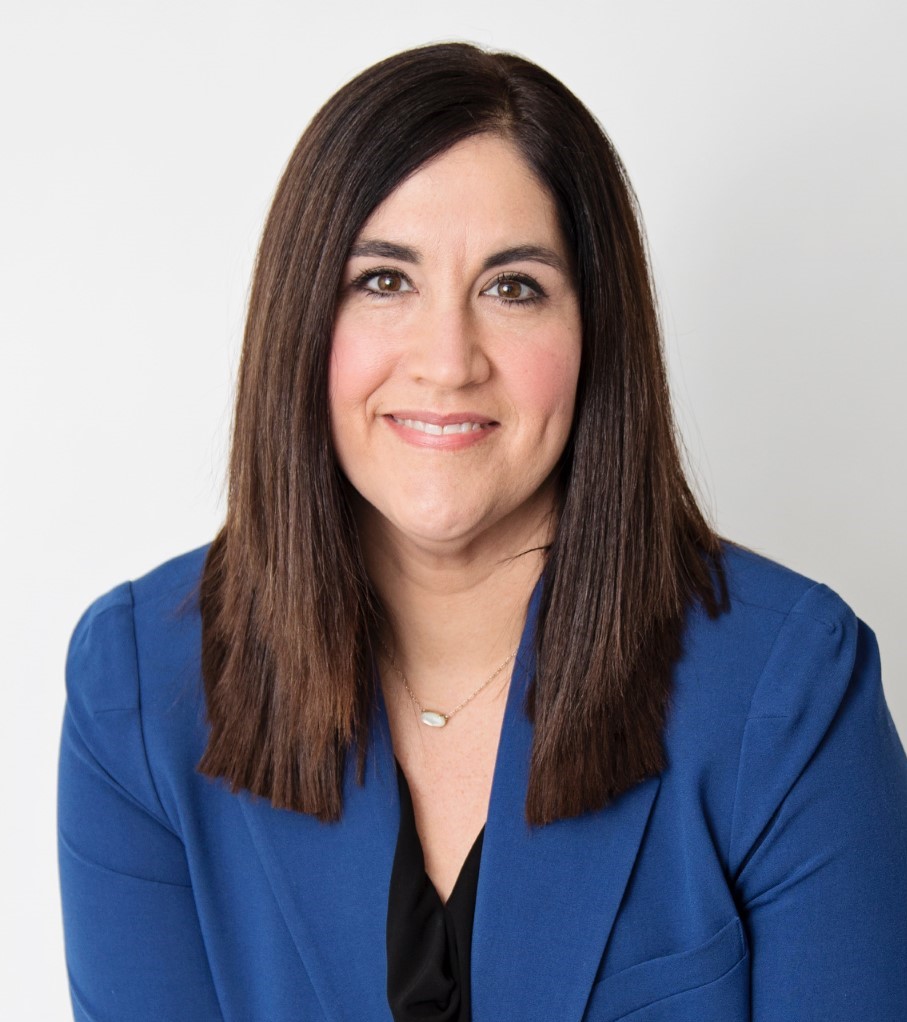 Katherine Lowry
Head of IncuBaker and Director of Practice Services, BakerHostetler
Katherine Lowry
Head of IncuBaker and Director of Practice Services, BakerHostetlerIn her current role as Director of Practice Services, Katherine Lowry leads BakerHostetler’s legal research and development team: IncuBaker. This service helps lawyers and clients navigate the intersection of digital business, emerging technology, and law. She manages transformational technology initiatives, such as augmentation of legal services using AI and intelligent automation, increasing enterprise data maturity and data literacy, developing smart legal contracts, and the delivery of information and research services. Most notably, Katherine has led the team in extensive analysis and market research to identify issues that can be automated for business post-signature, using new technology to streamline operations and improve client services. Katherine is regularly called on to share her expertise with organizations including ILTA, AALL, ALA, LEI, and her self-created Blockchain Cincinnati Meetup Group, which has nearly 400 members. She has been recognized as ILTA’s 2019 Thought Leader of the Year as well as PLLIP-SIS’s 2019 Innovative Professional of the Year.
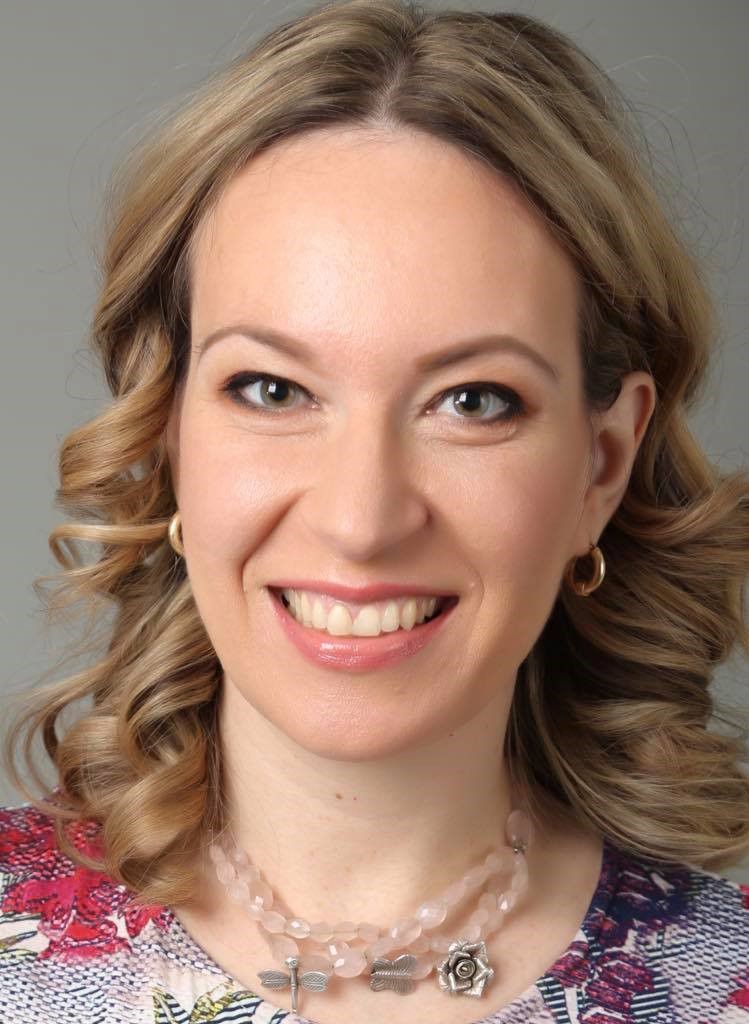 Jelena Madir
General Counsel, Gavi, the Vaccine Alliance
Jelena Madir
General Counsel, Gavi, the Vaccine AllianceIt’s challenging being a general counsel in normal times, but not many GCs can also boast the publication of books and the creation of courses on cutting-edge and innovative topics in the law during a pandemic. As the world endured a year of lockdowns and quarantines, the light at the end of the tunnel came in the form of a COVID-19 vaccine. To meet this challenge, Jelena Madir and her team worked on the set-up of the Covax Facility - a global risk-sharing mechanism for pooled procurement and equitable distribution of vaccines to all countries around the world. While buried deep in this project, Jelena also edited and co-authored HealthTech: Law and Regulation, which contains commentary from 20 experts and unpacks a range of legal and regulatory issues. The book covers topics as broad as data protection, product liability, and the regulation of medical devices and telemedicine, plus the use of cutting-edge technologies in healthcare. As if a major vaccine distribution project during a global pandemic and the publication of a book wasn’t enough, Jelena also created and teaches a distance-learning course on FinTech at the University of London.
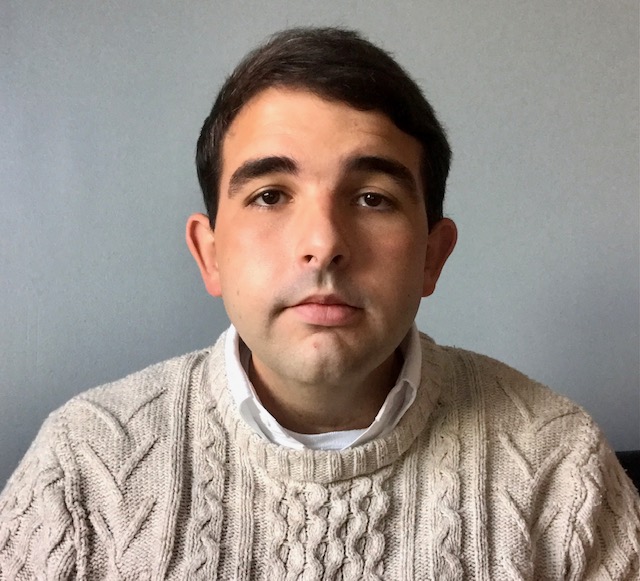 Nicholas Mignanelli
Research & Instructional Services Librarian, Yale Law Library
Nicholas Mignanelli
Research & Instructional Services Librarian, Yale Law LibraryNicholas Mignanelli is a leading voice in law librarianship, and a pioneer in the field of critical legal research (or “CLR”), the idea that we should question the values and assumptions inherent in legal research processes such as algorithms. Nicholas served as the Reference & Instructional Services Librarian and a Lecturer in Law at the University of Miami School of Law before joining the Yale Law Library in January. Nicholas has emerged as a true leader in the field, particularly through his work on CLR and artificial intelligence. He helped create the Research Crits Caucus of the American Association of Law Libraries (AALL). His articles on critical race approaches to the legal research process have twice won the AALL Call for Papers (New Members Division). Nicholas’s groundbreaking course steeped in CLR, which he taught this year, titled “(Re)Searching for Justice,” is the first of its kind and demonstrates the true potential for CLR pedagogy.
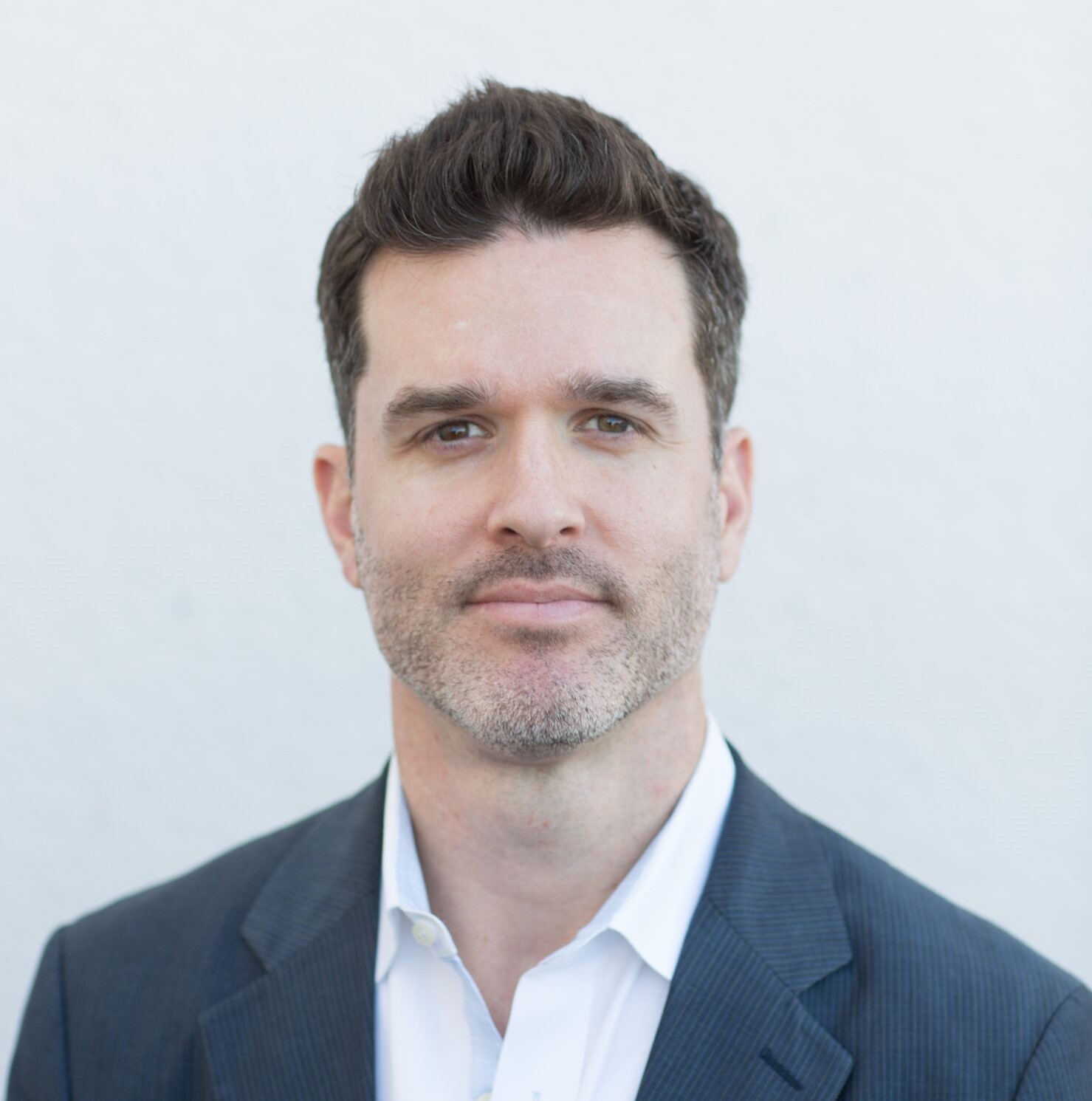 Rick Merrill
Founder and CEO, Gavelytics
Rick Merrill
Founder and CEO, GavelyticsAfter Graduating from UCLA Law school and working for a decade as a litigator at Greenberg Traurig, Rick Merrill entered into the nascent market of legal analytics when he started Gavelytics in 2015. Gavelytics provides detailed analysis of state trial court data, tagging and categorizing its fast-growing data set to enable litigators to learn from empirical legal history. Gavelytics has taken a narrow-but-deep approach, systematically analyzing the data of a state, then scaling the approach to other states. Rick has worked to ensure that the future of legal analytics will be distributed across all lawyer segments, not simply the early adopting top firms who apply analytics in litigation workflow decisions and client recruitment.
 Laura O’Bryan
Co-Owner, MyVirtual.Lawyer; Co-Founder, MVL for Attorneys
Laura O’Bryan
Co-Owner, MyVirtual.Lawyer; Co-Founder, MVL for AttorneysLaura O’Bryan is the co-founder of an online legal service provider called MyVirtual.Lawyer and creator of MVL licensing to assist attorneys throughout Arkansas. At MVL she works to provide legal assistance for individuals unable to afford an attorney, serving as a guide in their case, with online forms and limited-scope assistance from attorneys at affordable rates. This provides greater access to justice for clients, and a flexible way for lawyers to do work they are passionate about. Laura is a leader in advocating for human rights both in her profession and volunteer work. She also champions human rights by serving as Vice President of QLaw Arkansas, supporting the LGBTQ+ community in the legal industry. In the past, O’Bryan was a court watch volunteer for the Chicago Metropolitan Battered Women’s Network. Currently, she is a volunteer member of Futures Initiative Committee and member of the Client Development and Marketing Committee. This year Laura was recognized for her hard work at MyVirtual.Lawyer by being awarded the James I. Keane Memorial Award for Excellence in eLawyering.
 Dyane O’Leary
Associate Professor of Legal Writing and Director of Suffolk University Law School Legal Innovation & Technology Concentration, Suffolk University Law School
Dyane O’Leary
Associate Professor of Legal Writing and Director of Suffolk University Law School Legal Innovation & Technology Concentration, Suffolk University Law SchoolA widely-respected professor, Dyane O’Leary leads Suffolk Law’s Legal Innovation & Technology concentration. After graduating summa cum laude from both Villanova University and Suffolk University Law School, Dyane remained in Boston where she worked as an attorney at WilmerHale, LLP and gained experience by practicing complex commercial and intellectual property litigation. She later returned to Suffolk University where she became an associate professor of Legal Writing. As an educator, Dyane fosters learning where legal tech intersects with legal research, writing, analysis. She was one of the first to include lessons on attorney-client communications via text, and she continues to integrate technology competence into Suffolk’s pioneering legal practice curriculum. She has published on topics such as artificial intelligence tools for legal research and writing, and Dyane has designed an advanced writing class to build skills in areas such as e-discovery, research analytics, word processing for lawyers, legal typography, and digital design of legal documents.
 Holly Riccio
Director, California Judicial Center Library
Holly Riccio
Director, California Judicial Center LibraryAs the daughter of two librarians, law librarianship is in Holly Riccio’s professional DNA. Her role as the Director of the California Judicial Center Library follows a career spent in library and knowledge management positions in law firms. In her first few months on the job while the impact of the pandemic threatened to backlog the courts, Holly was instrumental in helping the courts transition from print-centric to offering research options for those required to work remotely. She continues to lead the process of digitizing legislative history and making more access points for library resources. Holly’s passion for the legal information profession is unmistakable and has manifested in her many volunteer roles with both AALL and ILTA, including serving as President of the American Association of Law Libraries (AALL) from 2014-2015. Among her activities as AALL President, she testified before the ABA Commission on the Future of Legal Services on various access to justice issues. She now serves as Government Law Libraries Special Interest Section Vice Chair/Chair-Elect. In 2019, Holly was recognized by her colleagues in the Northern California Association of Law Libraries chapter with the Professional Achievement Award. She has proven herself to be an ambassador for librarianship, not only within law librarian communities, but across the legal field in general.
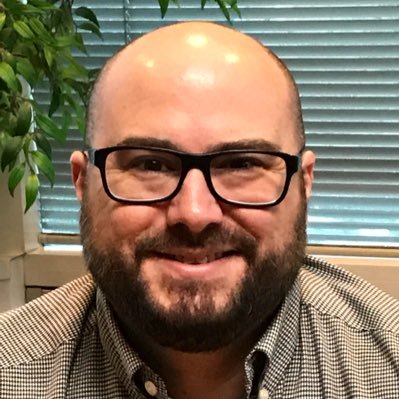 Nick Rishwain
Vice President of Business Development & Relations, Experts.com; Creator, LegalTechLive
Nick Rishwain
Vice President of Business Development & Relations, Experts.com; Creator, LegalTechLiveThere are a few sources of legal tech news and reports that are invaluable to the market – among the most important is LegalTechLive, which is hosted and produced by Nick Rishwain. On the podcast, which has more than 100 episodes, Nick has been a tireless community builder and supporter of startups in the legal tech space. LegalTechLive has had a wealth of interesting and enlightening conversations with key players and startups, while specifically highlighting the role played by women in legal tech. Nick unapologetically seeks out and amplifies the voices of women, especially female founders who are significantly underrepresented in the industry. LegalTechLive further aims to highlight the importance of oft-forgotten roles in law, including paralegals, marketers, and librarians. During a difficult year, Nick has been a force of positivity and humor that the legal industry has desperately needed.
 Margo Schlanger
Wade H. and Dores M. McCree Collegiate Professor of Law, Michigan Law
Margo Schlanger
Wade H. and Dores M. McCree Collegiate Professor of Law, Michigan LawMargo Schlanger has been living and breathing access to justice for her entire career. As a professor of constitutional and civil rights law at the University of Michigan Law School, she inspires students to work outside their casebooks and contribute to the community at large. To that end, Margo founded the Civil Rights Litigation Clearinghouse, a free database of documents, including case summaries written by law students, related to civil rights litigation. The site has become a godsend for members of the public, both experienced researchers and novices, because it makes information free and organized in a user-friendly format. On top of it all, she has served as counsel in several notable civil rights cases, such as Hamama v. Adducci, a class action case to ensure due process for Iraqi nationals slated for deportation.
 Anita Carr Shapiro (In Memoriam)
President Emerita, Practising Law Institute
Anita Carr Shapiro (In Memoriam)
President Emerita, Practising Law InstituteAnita Carr Shapiro leaves an indelible legacy, both as the first woman president in PLI’s 80-year history, and in the broader legal community she served. During her more than 20-year career at PLI, Anita earned a reputation as an innovative thinker with an instinct for anticipating and driving change. She was responsible for many transformational initiatives, office relocations, and the design of PLI’s state-of-the-art conference center. Anita kept PLI at the cutting edge of delivering current and relevant content. Her commitment to excellence included diversity and inclusion efforts, which have resulted in a steady increase in the number of women and diverse speakers featured in PLI programs. As a former litigator with a J.D. from Temple University School of Law, Anita used her skills to help veterans, while also supporting the arts, seniors in need, and local community initiatives. Anita was committed to mentoring others, particularly women and members of under-represented groups. A careful, empathetic listener, she treated everyone, from junior employees to legal luminaries, equally, with warmth and respect.
 Nikki Shaver
Managing Director of Innovation and Knowledge, Paul Hastings
Nikki Shaver
Managing Director of Innovation and Knowledge, Paul HastingsA few years ago, when she was practicing media law in Australia, Nicola (Nikki) Shaver had no idea she would someday be driving the culture of an entire industry. If you’ve been watching legal tech over the last year, you know Nikki’s work. Not only was Paul Hastings named Innovator of the Year by the International Legal Technology Association (ILTA), but Nikki was individually honored as Innovative Leader of the Year for her client-driven work optimizing teams across the globe. One of her new projects, Legaltech Hub, encapsulates Nikki’s passion for sharing knowledge with the entire legal community; the Hub aims to be “the world's most comprehensive directory of global legal technology tools for commercial legal.” In addition, Nikki is the founder of LID (Legal Innovation and Design), a global group for anyone driving innovation initiatives in the commercial legal space.
 Dominique Shelton Leipzig
Partner, Privacy & Security and Co-Chair of Ad Tech Privacy & Data Management, Perkins Coie LLP
Dominique Shelton Leipzig
Partner, Privacy & Security and Co-Chair of Ad Tech Privacy & Data Management, Perkins Coie LLPWith Europe’s General Data Protection Regulation, the California Consumer Privacy Act, and the California Privacy Right Act just to name a few, the global landscape of privacy law is changing fast. Dominique Shelton Leipzig helps clients navigate this landscape, helping them realize that every company is a data company, and data companies need to be in compliance with an increasingly complex global body of law. Dominique recently joined Perkins Coie LLP, serving as the Co-Chair of the Ad Tech Privacy & Data Management Division. She had previously served as the Global Chair of Alston & Bird’s AdTech Privacy and Data Management group. Dominique is a frequent lecturer on global privacy regulation, and she is the author of Transform: Data as a Pre-tangible Asset for a Post-data World.
 Evan Shenkman
Chief Knowledge and Innovation Officer, Fisher Phillips
Evan Shenkman
Chief Knowledge and Innovation Officer, Fisher PhillipsEvan Shenkman is the face of progress at Fisher Phillips. In addition to serving as the Chair of the Innovation Committee, he has been the Committee Team Leader for the past four years at the International Legal Technology Association (ILTA) Conference. Evan earned his law degree at Boston College and holds a Legal Lean Sigma Green Belt certification. Before he joined Fisher Phillips, he worked as a labor and employment litigator. Now, Evan is a legal tech tastemaker at his firm, where he applies A.I. and data analytics (with the help of Fastcase’s Docket Alarm) to assist attorneys with their clients. There are very few innovators trying as many new legal tools as Evan, positioning his firm to be a benchmark for post-pandemic productivity.
 Daryl Shetterly
Director of Orrick Analytics, Orrick, Herring & Sutcliffe LLP
Daryl Shetterly
Director of Orrick Analytics, Orrick, Herring & Sutcliffe LLPDaryl Shetterly is an intrapreneur with a knack for spotting, then standardizing, processes to increase the efficiency of legal services. As Director of Orrick Analytics, Daryl is disrupting from within the practice of making budgeting and forecasting decisions based on gut instinct. He’s leading the shift to standardization with data and information-sharing, and when there’s not a tool in the market that he needs to facilitate this, he inspires his team to create it for themselves. Case in point: Daryl and his team built the Orrick Observatory to provide Orrick attorneys with a peer-driven, Yelp-style database with reviews and insights on products and workflow solutions in the legal marketplace. In late 2020, Orrick opened its Observatory so anyone can find and compare tools in the free, self-service directory.
 Barry Simpson
Executive Director, Pennsylvania Bar Association
Barry Simpson
Executive Director, Pennsylvania Bar AssociationBarry Simpson is the longest-serving executive director in the history of the Pennsylvania Bar Association. He was a pioneer in creating the Association’s free online legal research program and negotiated legal malpractice insurance plans for the benefit of PBA members. Barry has been an advocate for diversity in the bar association community and in the legal profession more generally. During Barry’s tenure as executive director, the PBA hired its first Diversity Officer, and he supported the efforts of the PBA Diversity Task Force, as well as the PBA Women in the Profession, LGBT Rights, Minority Bar and Civil and Equal Rights committees. He has long been a leader in the National Association of Bar Executives and the Pennsylvania Association of Bar Executives, where he has brought together the leaders of state, metro, and county bar associations to collaborate in serving the profession. In a time of great change, it’s extremely helpful to have experienced leadership, and Barry’s advocacy for the profession, in Pennsylvania and nationally, are an inspiration to bar leaders everywhere.
 Alex Smith
Global Product Management Lead, iManage RAVN
Alex Smith
Global Product Management Lead, iManage RAVNAlex Smith is the Global Product Management Lead at iManage RAVN, which provides a suite of tools that allow firms to harness their collective knowledge. At iManage, he specializes in emerging topics such as workflow design, systems thinking, and content management. Alex’s influence in the legal tech industry goes beyond iManage, though - he is well-known for his contributions to legal tech discourse, popularizing trends like #IAbeforeAI (information architecture before artificial intelligence), which emphasizes that information architecture and data structure are necessary prerequisites before artificial intelligence tools can be fully developed and deployed. Prior to iManage, he worked at LexisNexis UK as well as Reed Smith, where he pioneered a client-facing innovation program to bring user-first design to the legal field. Alex has been a leader in demonstrating that AI isn’t magic and deflating unhelpful hype around new software systems, while quietly building and promoting real innovation through hard work.
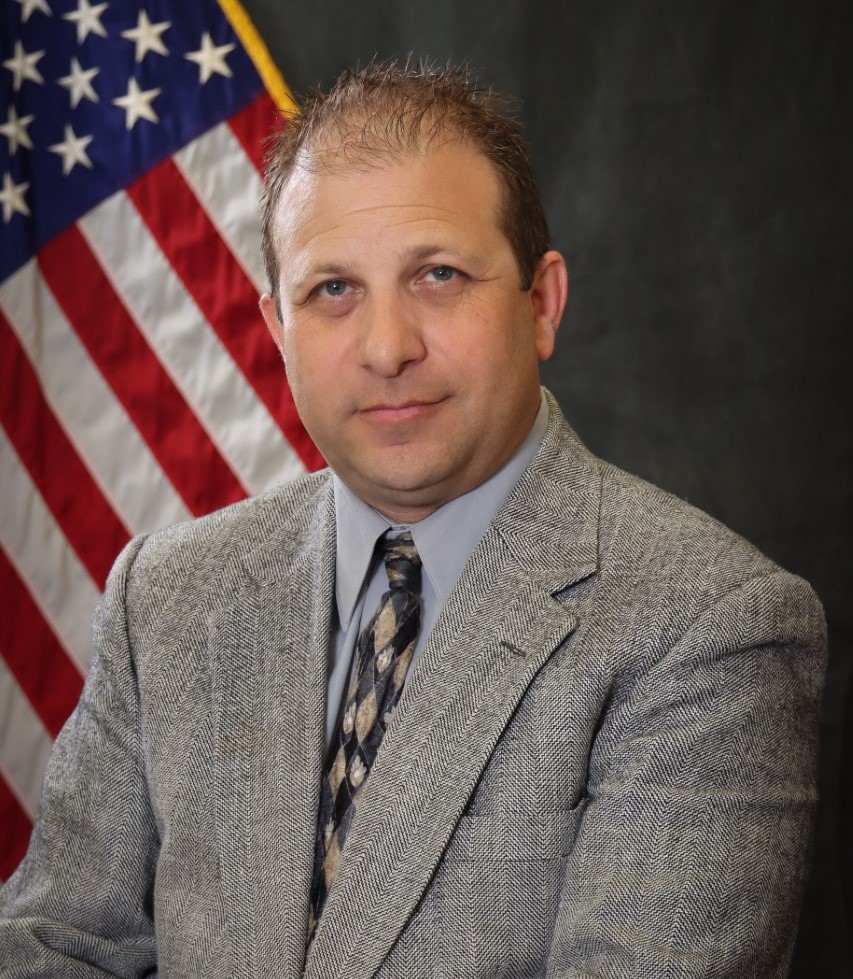 Brad Stern
County Attorney, Washington County, Wisconsin
Brad Stern
County Attorney, Washington County, WisconsinBrad Stern is the County Attorney in Washington County, Wisconsin, where he has implemented several technical improvements to the county’s processes since he was appointed in 2017. Brad identified a problem in Wisconsin’s open records laws – requesters working under the law are due a response from the government “as soon as practicable and without delay.” This lack of specificity, Brad found, made it easy for open records requests to be deprioritized and lost. To fix this, he worked with his county’s IT department to build a database for tracking received records requests, the progress of records searches, and how long the searches take. Brad modeled the database after a prior project tracking termination of parental rights cases. When he’s not improving the county’s use of technology, he is a singer and guitarist.
 Devin Stone
Attorney, StoneLaw DC
Devin Stone
Attorney, StoneLaw DCWhile he sometimes calls himself “The Big Bird” you might otherwise know Devin Stone by his YouTube moniker LegalEagle. A D.C. trial attorney and Georgetown Law faculty member, Devin has been helping the public understand legal issues in a fun and entertaining way since 2017. Often tapping into pop culture topics (think the time-honored attorney tradition of pointing out what is fake on Law & Order) or current events, Devin’s videos are a major hit – he has nearly 2 million subscribers. When Devin isn’t slinging videos he’s at his day job working on trials across a wide range of practice areas, such as contract, intellectual property, and business torts litigation.
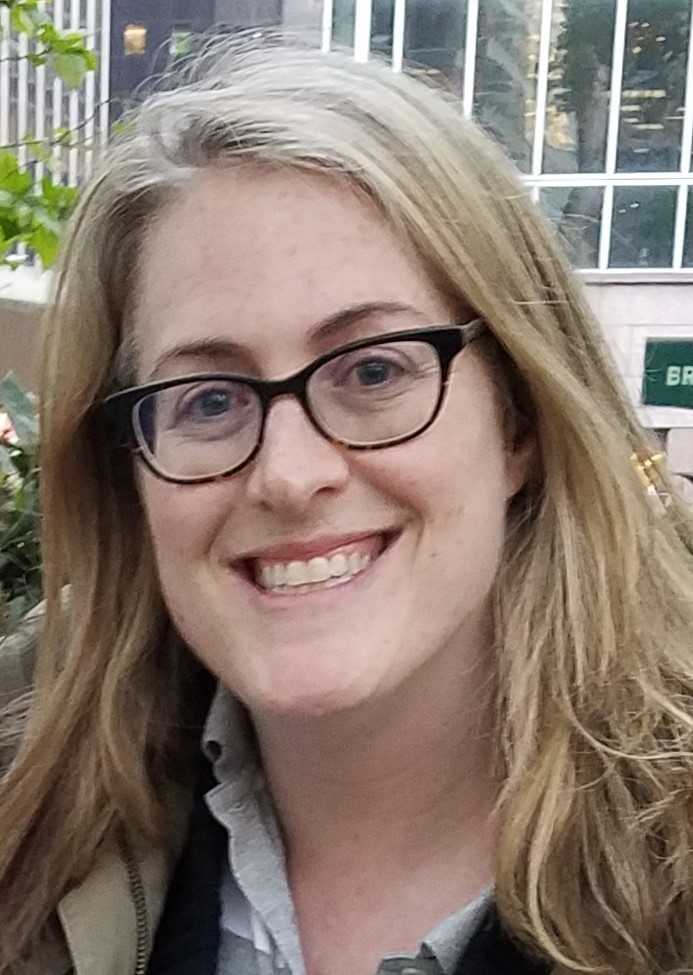 Jessica Stuart
Senior Product Manager, Pro Bono Net
Jessica Stuart
Senior Product Manager, Pro Bono NetJessica Stuart is passionate about access to justice, and her motivation has fueled the development of Pro Bono Net’s Pro Bono Manager. Jessica is the product manager responsible for the practice management application, which is designed to increase the effectiveness and reach of law firm pro bono programs. When the COVID-19 pandemic unexpectedly forced legal services to go fully remote, law firms’ pro bono initiatives both became more urgent and faced new challenges. Jessica quickly deployed Pro Bono Manager so that firms seamlessly could conduct pro bono work for communities in need throughout the crisis. In addition to her stewardship of Pro Bono Manager, Jessica led the product development strategy for GeorgiaLegalConnect, a new statewide remote offering that expands access to pro bono assistance for rural and underserved communities impacted by the pandemic.
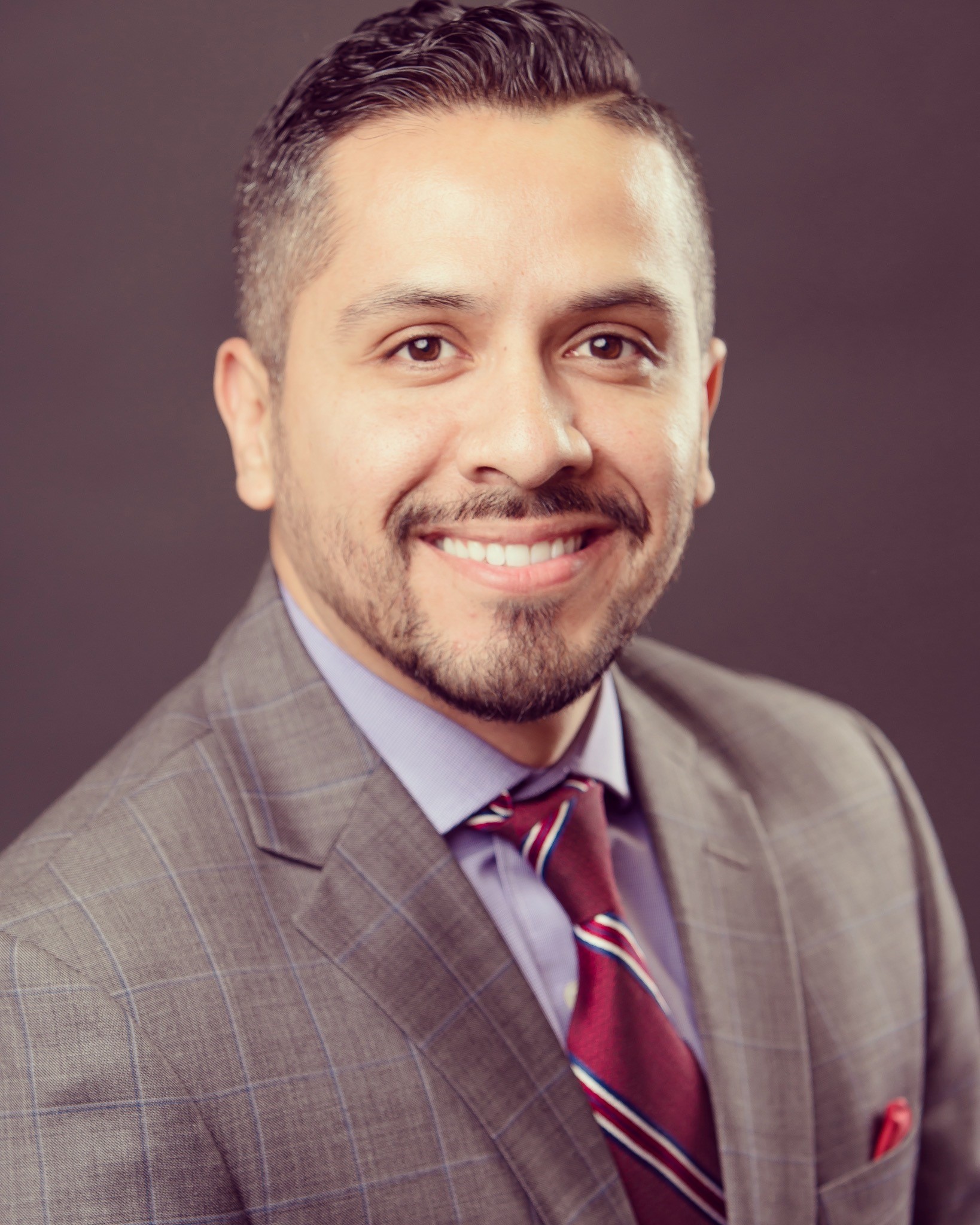 Marcos A. Tapia
Shareholder, Tiffany & Bosco, P.A.
Marcos A. Tapia
Shareholder, Tiffany & Bosco, P.A.The son of immigrants, Marcos Tapia grew up interpreting for his parents - a skill that he carried over to his legal career, where he translates legal matters and is a tireless advocate for others. Marcos graduated from law school in 2015, and soon thereafter graduated from the State Bar of Arizona’s Bar Leadership Institute, Valle Del Sol’s Hispanic Leadership Institute, and Valley Leadership Institute. He worked as an insurance defense litigator for his first two years of practice then joined Tiffany & Bosco in the civil litigation group, where he became the top originating associate in each of his three years there. Marcos was recognized as a “Top Lawyer Under 40” by the Hispanic National Bar Association and most recently as a Super Lawyers Rising Star in Business Litigation in 2021. Marcos was the first in his family to attend college and law school, and became a law firm partner within 5 years of starting to practice law. Despite all his success, he particularly enjoys assisting clients in the Latinx community to achieve their goals. He also serves on the board for the Aguila Youth Leadership Institute where he was a founding member of its Pre-Law Program, and is a founding member of the Phoenix Legal Action Network (“PLAN”).
 Alvin Tedjamulia
CTO, NetDocuments
Alvin Tedjamulia
CTO, NetDocumentsAlvin Tedjamulia is one of the original and early-adapters to cloud platforms in the legal industry, and he has continued to serve as a trail guide for many throughout the pandemic-forced work from home/remote working reality. Currently the CTO of cloud tech company NetDocuments, Alvin is entering his fourth decade in the technology space. He co-founded SoftSolutions in 1989, a document management system. WordPerfect eventually acquired SoftSolutions, and he became CTO at the venerable word processor company. At WordPerfect, he founded critical initiatives like the Open Document Management API. When WordPerfect was itself acquired by Novell, he served as VP of Advanced Technologies and designed the Comprehensive Law Office, a time management system which is now a part of Aderant. Alvin is perhaps most enthusiastic - and most memorable presenter - about pushing firms to adopt cloud technologies. At NetDocuments, Alvin wears many hats, managing strategic planning, cloud engineering, R&D, and international datacenter operations.
 Ryan Walker
Chief Technology Officer, Casetext
Ryan Walker
Chief Technology Officer, CasetextMath can change the world. Case in point: Ryan Walker. As a mathematician and analyst, Ryan has made a significant impact on the Casetext team and is helping transform the way legal research platforms function. Beginning as a data scientist with the company in 2015, Ryan did most of the engineering for CARA, Casetext’s pioneering brief analysis engine. Shortly thereafter, Ryan was promoted to Vice President of Data Science, and later to the Chief Technology Officer. Ryan received his Ph.D. in mathematics from the University of Kentucky and has also worked as a quantitative marketing analyst developing mathematical models for health care and a machine learning engineer. He joined Castext, a small start-up at the time, to help build a platform for affordable, open legal research.
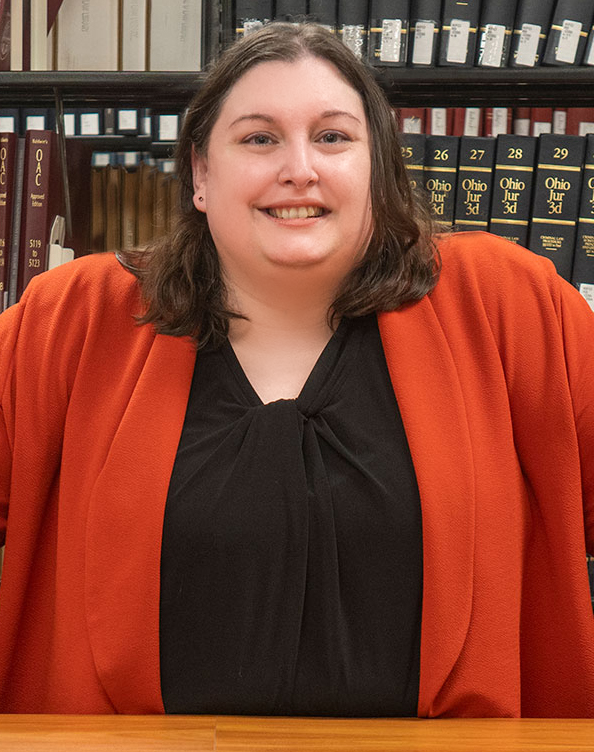 Jennifer Wondracek
Director of the Law Library; Professor of Legal Research and Writing, Capital University Law School
Jennifer Wondracek
Director of the Law Library; Professor of Legal Research and Writing, Capital University Law SchoolJennifer Wondracek is charting a new course for the study of legal research and writing, designed to prepare law students to enter the profession practice-ready and proficient in the fast-changing world of legal technology. As the Director of the Law Library and Professor of Legal Research and Writing at Capital University Law School, Jennifer is updating the curriculum to address the duty of technology competence, and she’s equipping students for success in 2021 literacies such as remote working, communicating with clients online and via apps, and participating in court proceedings virtually. During her past tenure at UNT Dallas College of Law as Director of Legal Education Technology, she created several programs that reflect this focus, including the creation of a film/video studio for the law school, which proved invaluable to faculty and staff navigating to online teaching through COVID-19. Although we can’t be completely sure what the future has in store for this generation of law students, Jennifer is preparing them for whatever comes next, a model for legal educators everywhere.

Winner of the prestigious American Association of Law Libraries (New Product) Award, Fastcase for iOS, Android, and Windows Phone is used by more attorneys than any other legal app according to the ABA. Anyone may use the app for free to access Fastcase's comprehensive legal research database on the go.